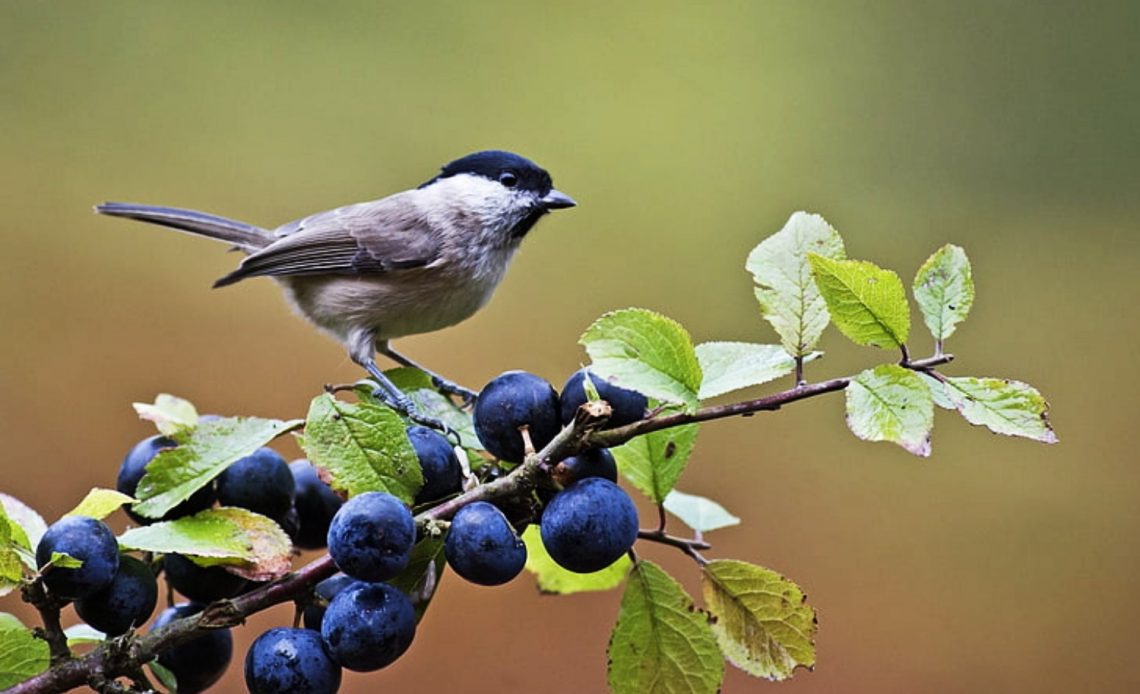

We’re here to help! Wild Yards is a completely free website that is 100% dedicated to helping you create a wildlife-friendly, sustainable yard. Read more
WildYards is reader-supported. When you buy a product through a link on our site, we may earn a comission. Every product is independently selected by our (obsessive) editors and our reviews are unbiased and objective. Read more about our mission or our privacy policy.
If you’ve ever grown your own blueberries, chances are, you already know the answer to this question. Can birds eat blueberries? Yes, they can! And it’s not uncommon for flocks of birds to descend on blueberry patches and rob backyard gardeners of every last blueberry therein. But are blueberries actually good for birds to eat, and if so, what’s the best way to offer them to the birds in your backyard?
Blueberries are safe for birds to eat, and are very popular with starlings, robins, and woodpeckers. You can feed birds blueberries by leaving them in a dish, or simply by planting several blueberry bushes near your bird feeders.
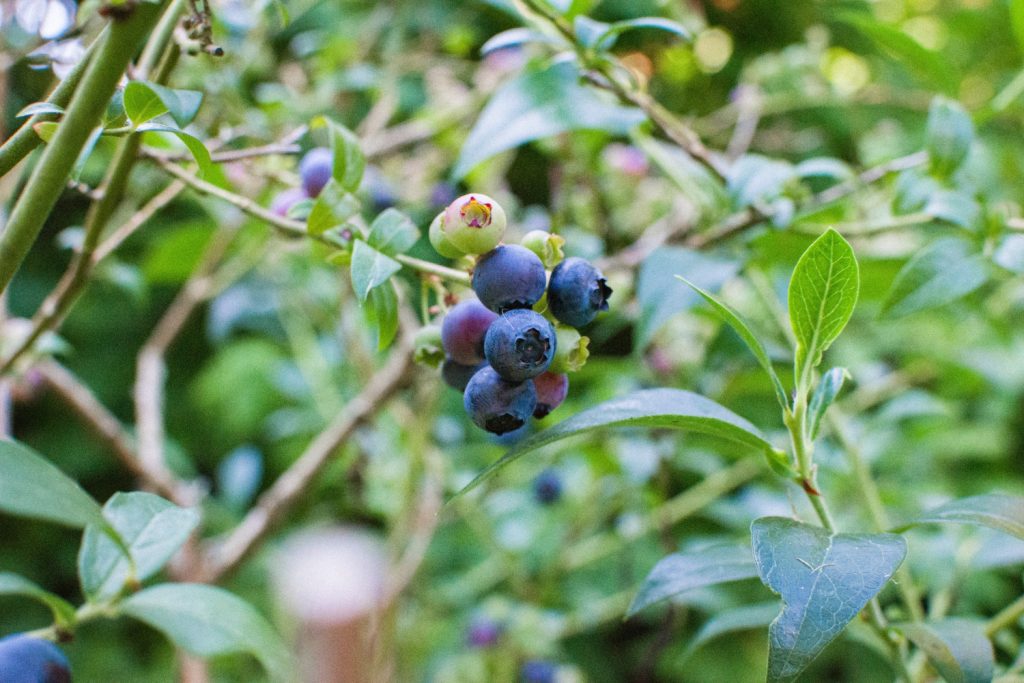
Are blueberries safe for birds to eat?
The good news is that blueberries are perfectly safe for birds to eat. Birds like ripe and overripe blueberries best, though they may peck on unripe berries here and there if they have access to them.
Frozen blueberries can be used to feed birds, but should be allowed to warm up to room temperature first. Dried and dehydrated blueberries are also safe for birds to eat, and can be added to store-bought birdseed blends and mixed into homemade suet recipes to feed local birds all season long.
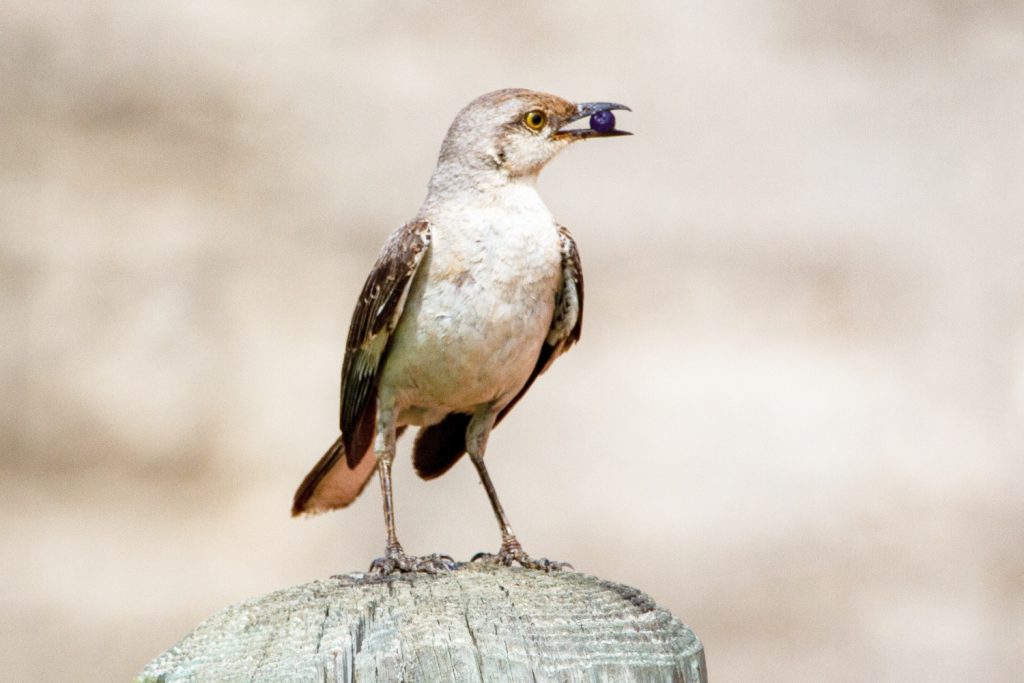
Why are blueberries good for birds?
Blueberries are incredibly healthy, and not just for people, but for birds, too. These low-sugar fruits provide birds with a good source of moisture, making them a wonderful summer treat. They’re also small and soft, so they’re easy for birds to eat. Because birds don’t have teeth, they rely on their claws and beaks to tear off chunks of food, which they then swallow whole. Blueberries make this job less taxing for hungry birds.
In addition to being easy to eat, blueberries are full of vitamin B6, which helps birds turn the foods they eat into the energy they need to survive. Blueberries are also full of vitamin C, which is essential for immune function and plays a critical role in collagen synthesis, promoting skin, joint, and eye health.
In addition to the blueberry’s vitamin content, this superfruit is also a good source of antioxidants. These powerful compounds scour the body for free radicals, working against oxidation to slow the aging process, keeping birds healthy and allowing them to live long lives.
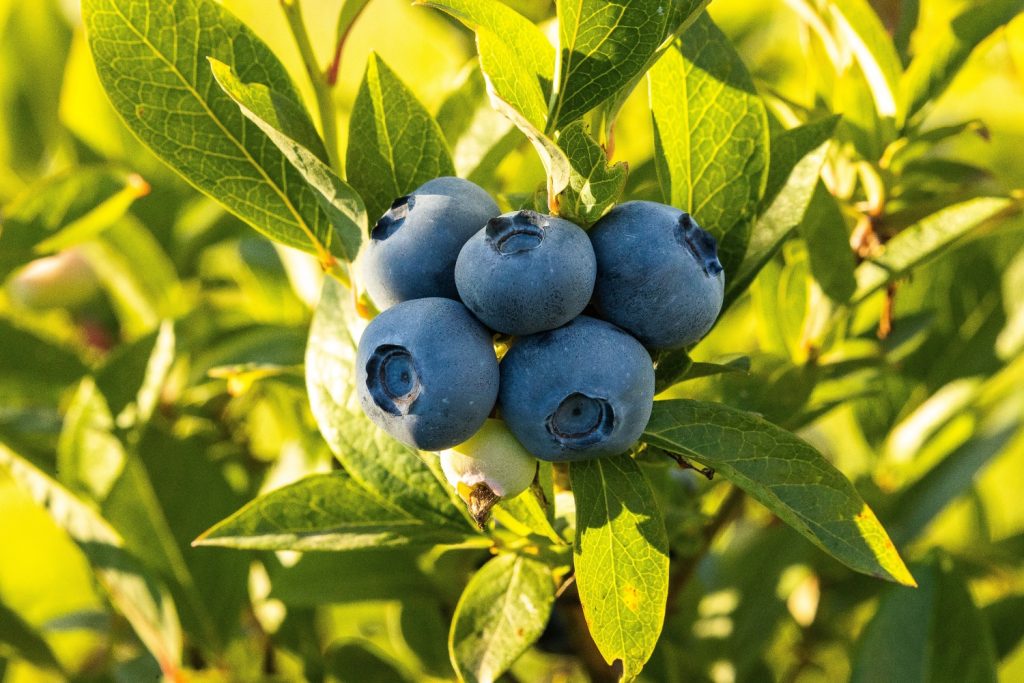
How should you prepare blueberries for wild birds to eat?
Prepare blueberries for birds the same way you would prepare them if you were eating them yourself. Simply wash them off in cool water and pat them dry. It’s safe to feed birds unripe, ripe, and overripe blueberries, so there’s no need to pick through them all. Just make sure to avoid feeding birds moldy berries or berries that feel slimy and have a putrid smell, as these can make birds sick.
While aged blueberries aren’t appropriate for feeding wild birds, they’re good for making compost. Add bad berries, as well as other overripe fruits, vegetables, and peels, to a 5-gallon bucket to create fertilizer for the plants in your garden.
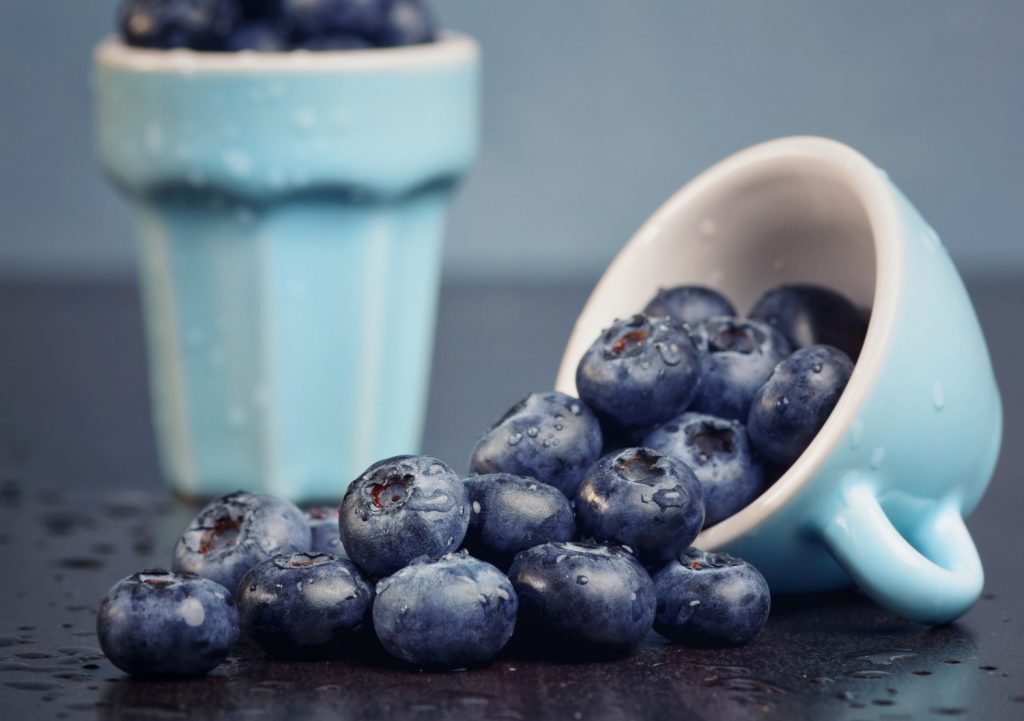
Should you add blueberries to your bird feeders?
You can certainly add dry or dehydrated blueberries to the bird seed you keep in your traditional bird feeders. However, it’s not a good idea to add fresh juicy blueberries to dry birdseed. As the berries break down, they release moisture, and that moisture will eventually cause the seed to become moldy.
Blueberries, like other fruits, also attract ants, and your local birds may not appreciate having to fight a ton of bugs for their food. Additionally, some birds simply don’t like blueberries. And if they find a bunch of them mixed in their feeders, they may wind up wasting a lot of birdseed as they pick the fruits out.
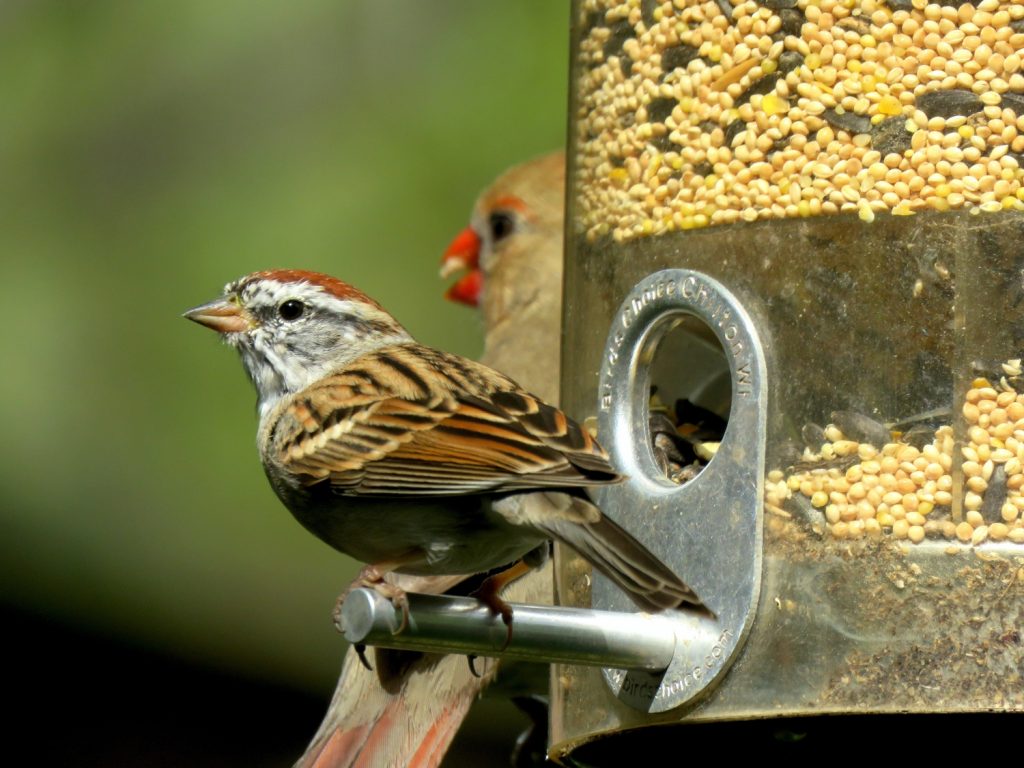
How can you feed blueberries to birds?
If you want to feed the birds in your backyard fresh blueberries, simply place a handful in a dish and set it a few feet away from your bird feeder. You can also pour the berries into an empty bird bath for them to sort through, and this works best if you want to offer your local birds a variety of fruits.
Just be sure to check the berries regularly. Fruits go bad quickly when it’s hot outside. And ants just love to snack on sugary foods. So if you notice any insect infestations or signs that the fruit has gone bad, dump the berries out, clean the dish thoroughly, and add fresh ones.
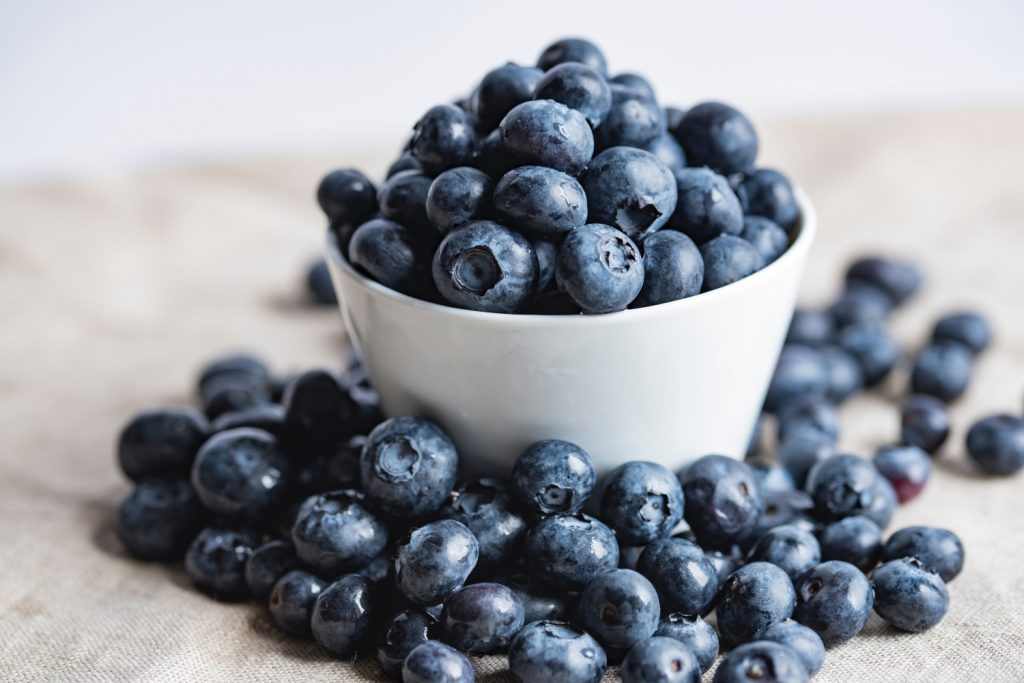
Can you use blueberries to make suet?
Suet is a combination of beef fat, nuts, seeds, and fruits molded into square “cakes” designed to fit into special suet feeders. While you can’t make suet with blueberries alone, you can incorporate them into your suet recipe. Mix dried blueberries with mealworms, peanuts, sunflower seeds, and other foods that birds love to make suet cakes that will keep your local birds coming back to your yard again and again.
Can birds eat blueberry preserves?
Yes, birds can eat blueberry jams and jellies. You can add several tablespoons to a dish and leave it out for the birds in your backyard to slurp on. Fruit jellies are especially popular with hummingbirds, who rely on sugary foods to maintain their incredibly high metabolisms. Just be sure to choose blueberry preserves that are made with real sugar, as xylitol and other artificial sweeteners are toxic to birds.
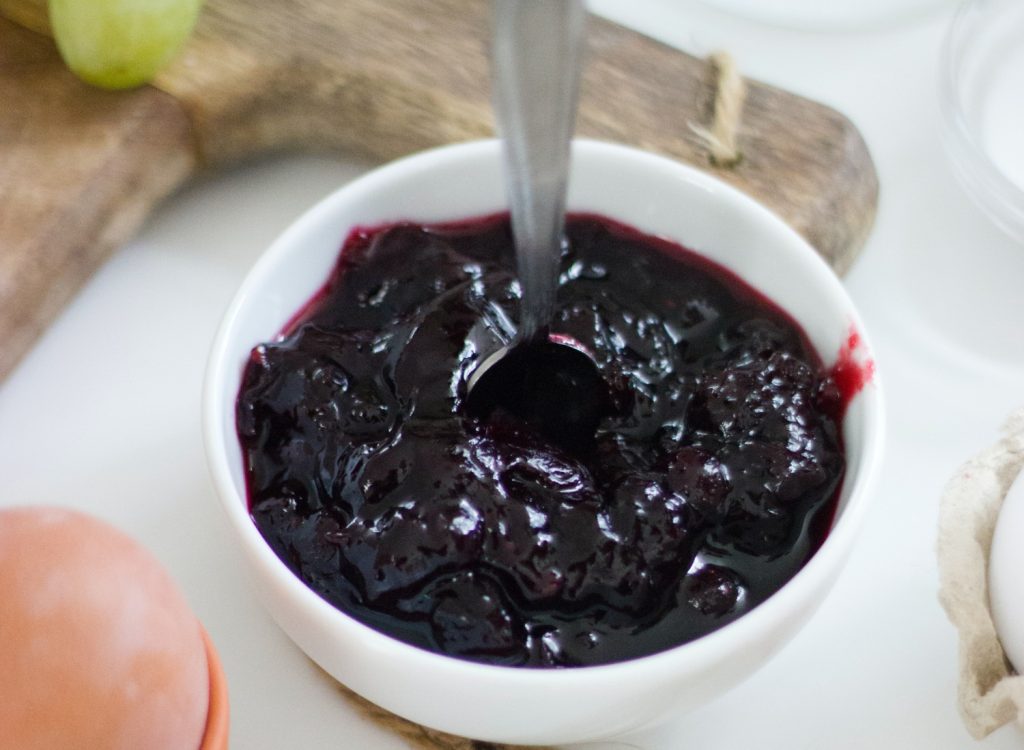
Which birds like to eat blueberries?
If you have a blueberry patch in your backyard, you know firsthand that just about any bird will eat them. But, that said, some birds are more likely to eat blueberries than others. If you choose to leave a dish of blueberries out in your backyard, you’ll likely see the following birds very shortly afterward:
- Blackbirds
- Bluebirds
- Finches
- Mockingbirds
- Robins
- Starlings
- Thrushes
- Warblers
- Waxwings
- Woodpeckers
While all of the birds mentioned on this list enjoy blueberries, starlings seem to like them the most. These pesky birds are among the most damaging to blueberry patches and the agricultural industry as a whole. Many fruit growers now rely on falcons to help patrol fields and keep the pesky birds away from their crops.
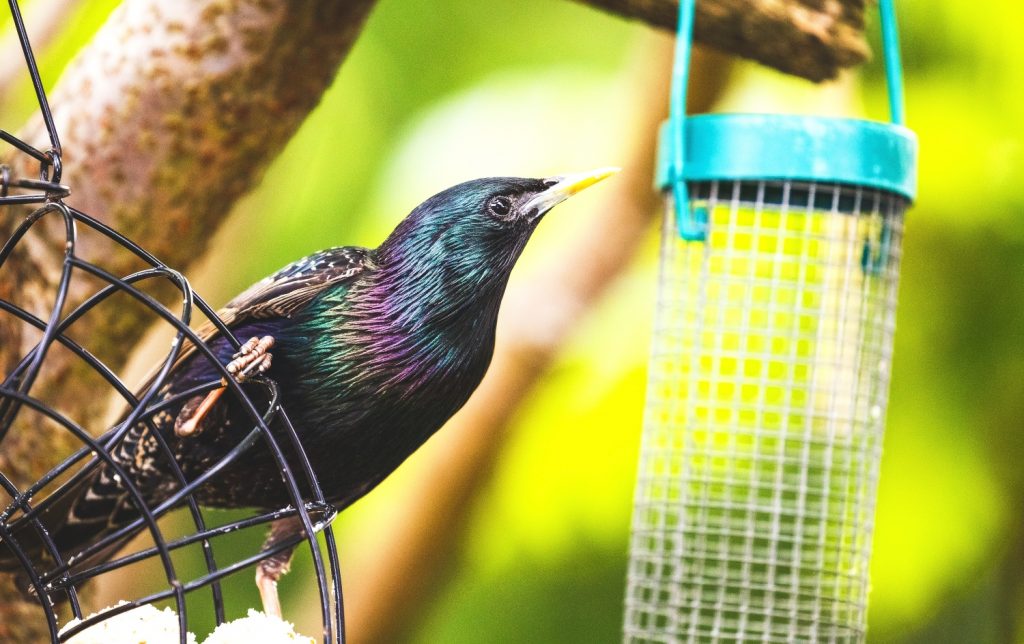
When do birds like to eat blueberries?
Birds will eat blueberries whenever they’re available. However, blueberries ripen in early to mid-summer, so birds will be most eager to eat them then. Birds have varying nutritional needs based on the foods that are available as the seasons change. By simulating nature, you’ll be giving birds exactly what they need when they need it most.
We recommend feeding birds fresh fruits during the spring and summer months and switching to energy-dense foods like nuts, seeds, and dried fruits from autumn to winter. This mimics what sorts of foods would be around for birds to forage on in the wild, so it suits their nutritional needs better.
Is it possible to feed birds too many blueberries?
Blueberries are very low in sugar, with just 7 grams per ½-cup. Since it’s unlikely that a single bird could eat that many blueberries in one sitting, the actual amount of sugar they consume is much less. So it’s highly unlikely that birds could ever eat too many blueberries.
To ensure the birds in your backyard get more than just blueberries, be sure to offer other foods in addition to blueberries. Install a traditional seed bird feeder, as well as a suet feeder and a nyjer seed sock. Also, consider sprinkling dehydrated mealworms or crickets in the grass nearby. Variety encourages the bird’s natural foraging instinct.
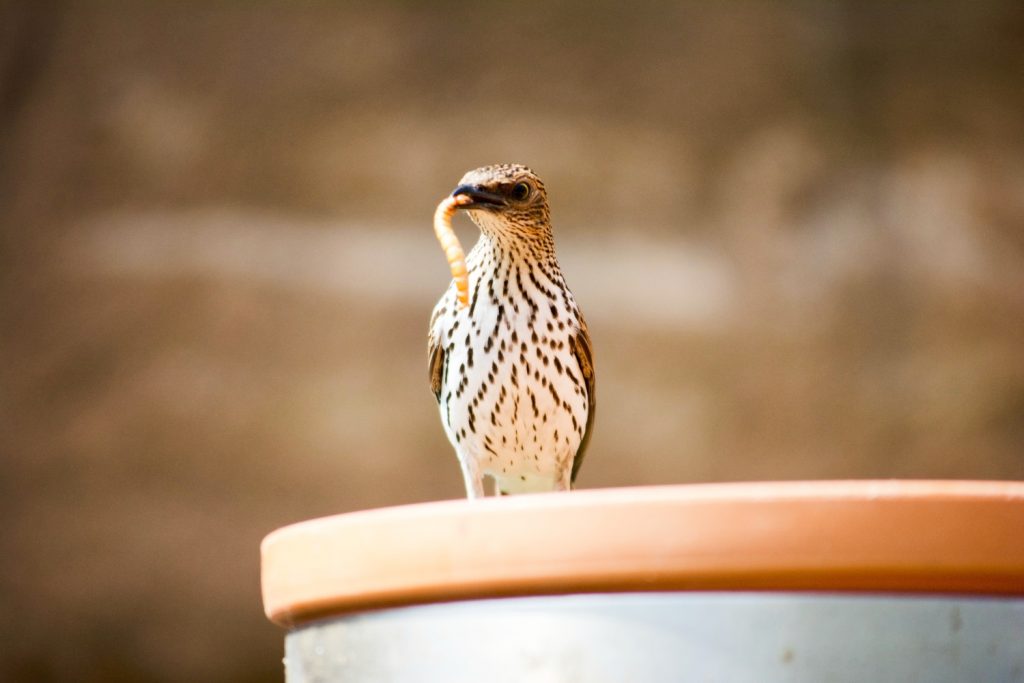
How can you keep birds away from your blueberry bushes?
Maybe you’re not interested in feeding birds blueberries. Maybe you’re more interested in keeping the local birds as far away from your blueberry patch as possible. Well, you’re in luck! There are a few easy things you can do to keep these pesky birds at bay.
Start by installing owl boxes. Many owls, including great horned owls and barred owls, prey on small birds. Hanging up an owl box near your blueberry patch will invite these birds of prey to take up residence on your property, where they’ll be all too happy to keep smaller birds out of your garden for you.
You can also try putting up bird netting around your blueberry patch. Using this mesh to create a barrier between your garden and the outside world is one of the most effective ways of keeping birds out. However, persistent birds may be able to tear the netting over time, so you’ll need to check it regularly.
Lastly, you can keep birds out of your blueberry patch by planting several bushes near your bird feeders. Giving the birds their own blueberry bushes may help spare the ones growing in your garden.
Do birds like other fruits, too?
As omnivores, birds enjoy a wide variety of produce. While birds show a preference for blueberries and other small fruits, they also enjoy bananas, watermelons, oranges, apples, nectarines, pears, strawberries, and grapes. To bring the most birds to your backyard, be sure to offer several different kinds of fruit at any given time. This will also help you figure out which fruits your local birds like best.
Overall, blueberries are a nutritious, low-sugar snack that many backyard birds enjoy. You can leave blueberries out for your neighborhood’s wild birds all year long.
